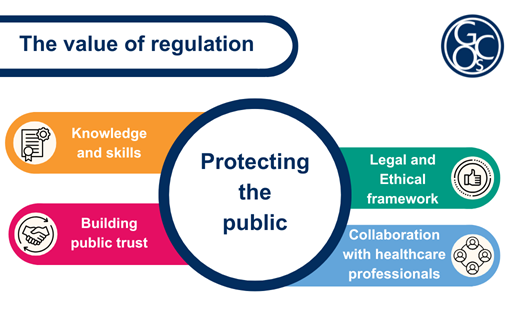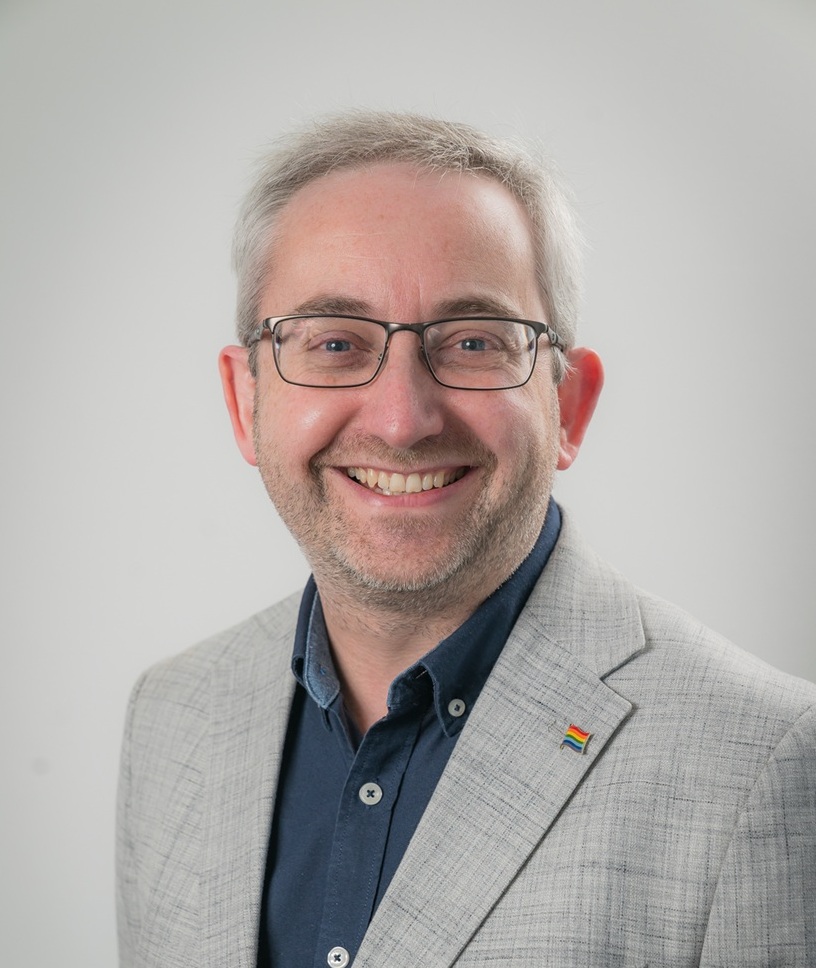With change comes opportunity: for GOsC and the profession
17 June 2025
Our Chief Executive, Matthew Redford, explains some of the work the GOsC has been doing to improve the way we communicate and engage with the profession, and some of the changes still to come.
We recently bid farewell to a retiring GOsC colleague. When thinking about what I wanted to say at her leaving get-together, I realised that I had worked with my colleague for 17 years and that I had been in the role of GOsC Chief Executive and Registrar for almost six years. Time does indeed fly past and it caused me to stop and reflect on changes that have happened at the GOsC, and also what the future holds.
Thinking about the future and the inevitable change that follows can be daunting. But with change comes opportunity. More of that later.
In writing this blog I felt it was important to recognise that we are living in uncertain times – the wider socio-political environment is such that for many people even putting on the daily news can be a stressful experience. And that is before even thinking about the sources of stress in our own personal and professional lives.
For those who work in healthcare, practitioners face dealing with other people’s problems and challenges on a daily basis. For osteopaths, this is no different and the high-quality care you deliver to patients is not something that my colleagues and I take for granted.
Our tone of voice
In undertaking our statutory role we know that the ‘voice of the regulator’ can carry with it a weight which can impact in a way which adds to the stresses of daily life. This is something we heard clearly in the findings of the registrant and stakeholder perceptions research carried out by DJS last year. And this is why we are listening to you and making changes to the way in which we work, such as holding weekly drop-in sessions, opening new communication channels like WhatsApp and, importantly, starting work to modernise our website so that it is more accessible, easier to use, reflects the GOsC values and, to be honest, is more ‘human’ in its tone and content.
Tone is important, and my team and I have recently held an all-staff workshop to think further about our organisational tone and language. Yes, we have statutory responsibilities to deliver, but this does not prevent us from being clearer in our language, avoiding jargon, and communicating with osteopaths, patients, partners across the profession and students in a manner which is adult-to-adult. We hope that in doing so, we can better communicate and engage with the profession in a manner that is respectful, collaborative, and influential, demonstrating our values in everything we do.
We want to improve, and we will – continuing improvement is embedded in our culture at the GOsC.
Will we get it right every time? Probably not – we are all human beings and that makes us fallible. But we are doing our best to actively think about our tone and make improvements, which I believe is the right approach.
Putting people at the heart of what we do
I’ve used the term ‘human’ a couple of times now and there is a reason. In reflecting on my time as Chief Executive, I am proud of the changes we have made to become an organisation that puts people at the heart of everything we do. Be that meeting with osteopathic regional groups in-person or online; engaging with and visiting students; listening to feedback from stakeholders through 1:1 meetings and consultations; placing a much greater emphasis on equity, diversity, inclusion and belonging throughout all that we do, or supporting all those involved in fitness to practise proceedings by providing the free and confidential Independent Support Service.
All of these activities, I hope, go some way to showing the real face of the GOsC – a small group of dedicated staff who value the profession and who want to help support patient safety.
The value of regulation
And there in lies, what I believe, is a deep routed connection between the GOsC and all osteopaths on the Register. We all value patient safety. And being able to demonstrate to patients that osteopaths are a highly skilled profession who keep their skills updated; who work within the confines of ethical and legal boundaries; who collaborate routinely with fellow healthcare professionals; and who build public trust through their professional status; means that the public and patients are protected.
This is the value of regulation and what it means to be a professional.

Thinking about the future
Before I sign off this blog, I did say earlier that change can bring opportunities. And I do believe that to be the case in terms of how GOsC operates in the future. The use of AI will undoubtedly shape and influence how we do things, but we must be ready and adaptable, and we must not lose the personal touch.
We are thinking through plans to make the work of Council and the governance of the GOsC more visible within different regions of the UK by hosting Council meetings around the country. We have also launched a consultation on how we can further protect the osteopathic title. And as I mentioned earlier in the blog, we will be developing and implementing a new modern website. All of these activities support the implementation of our Strategy, through to 2030, which is built around three aims: to strengthen trust, to champion inclusivity and to embrace innovation.
Get in touch
We welcome suggestions from osteopaths, patients, students and our partners across the profession about what else we can do to demonstrate the value of regulation, and to help deliver our strategy. Do get in touch by email to let me know: ce@osteopathy.org.uk



